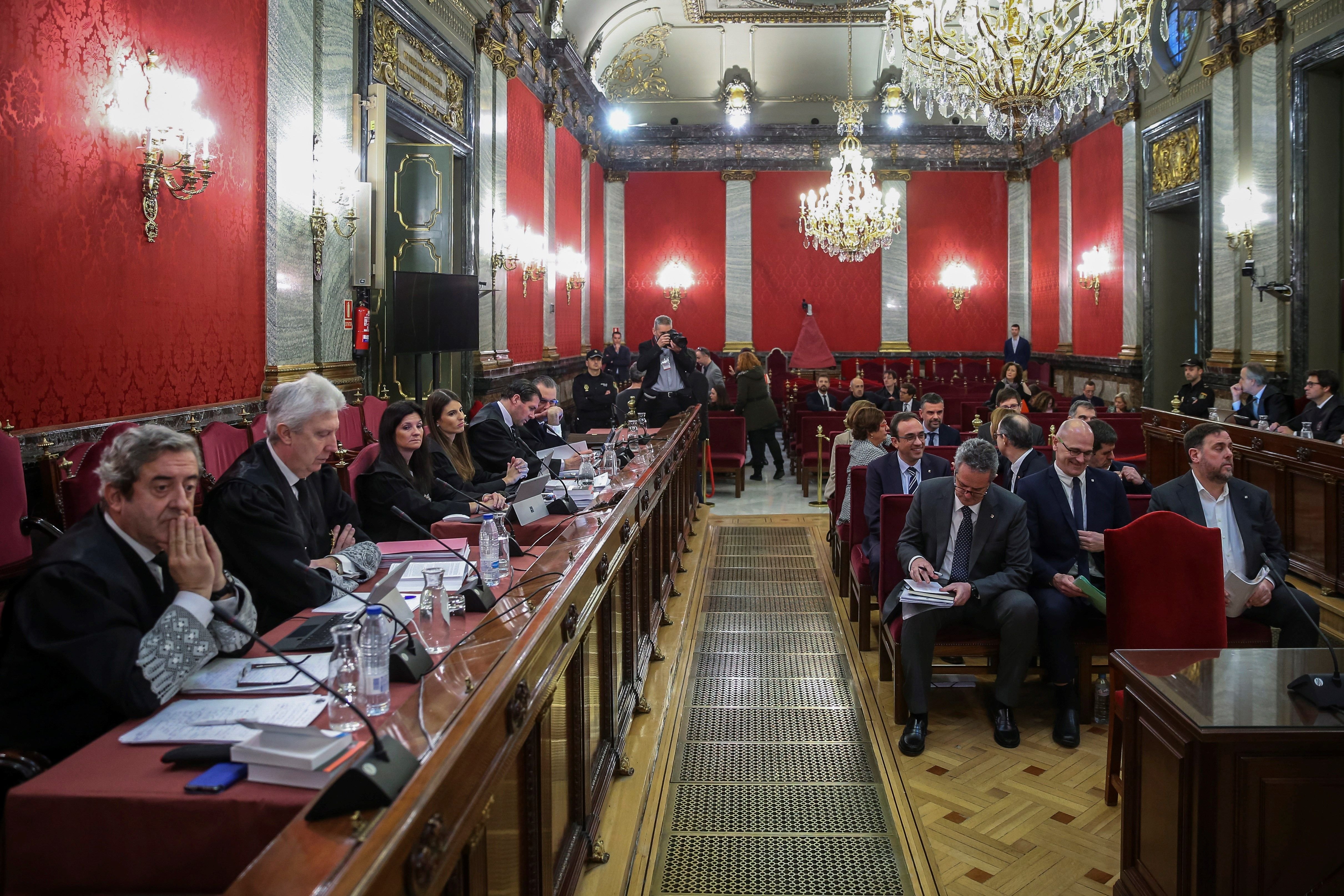The specially formed platform International Trial Watch has criticised the ongoing refusal from the presiding judge in the Catalan independence trial, Manuel Marchena, to "compare testimony with the video resources or the showing of documentation from the investigation". This is "especially worrying these weeks" when police are testifying, given that "there were hundreds of people injured" during the police actions against the referendum.
Police officers who have testified in recent weeks have consistently denied the accusations of disproportionate use of force by police during the referendum. "Not being able to compare witness statements with the images recorded of the events prevents letting possible contradictions appear and as such has direct effects on the evaluation of the evidence the court could make," the observers warn.
This week's statement from the platform says that police witnesses have: "repeatedly insisted on concepts and descriptions [...] like hatred, pre-revolutionary atmosphere, hostility, fear, despite them being subjective assessments which in no way link the defendants with the events under consideration".
Given this, and the evidence seen so far, they conclude "there remains a lack of proportionality between the evidence and the charges pursued by the prosecution".
They also express concern over the way they "continue treating certain facts like which could be an expression of the exercising of fundamental rights, like those of assembly and demonstration, as well as the criminalisation of ideological factors". They believe that "the way in which prosecutors [are conducting their questioning] insinuates that assembling and shouting, singing "they won't pass" and "we will vote", looking down on police forces, or showing disapproval for police actions, can be evidence for sedition or rebellion".
International Trial Watch had two observers present during the eighth week of the trial: Katrín Oddsdóttir, human rights lawyer who took part in drafting the proposed new Icelandic Constitution, and Iñaki Esparza, professor in Criminal Law at the University of the Basque Country.

